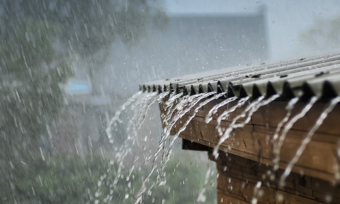Your home is more than a roof over your head. It’s a valuable investment, and it’s certainly worth protecting by insuring it. In fact, when you take out a home loan, the lender is likely to make it a condition of the loan that you have home insurance.
But even with insurance in place, it’s important to avoid any steps or oversights that could see your insurance company walk away from a claim.
9 mistakes that could void your home insurance
We look at nine mistakes that could possibly void your home insurance.
1. Forgetting to renew the policy
It may sound obvious: if you don’t pay your premium when it falls due, you’re not going to be covered. The trouble is, in our busy lives, it’s easy to put bills on the backburner and forget about them altogether.
But if you don’t pay the premium, your cover may be cancelled.
The insurance company may offer a grace period, but after a certain point of unpaid premiums your insurer can refuse to pay a claim/cancel your insurance.
2. Your home is unoccupied
If you’re planning an extended vacation, it’s worth letting the insurance company know. Leaving your home vacant for an extended period of time can void your insurance. The timespan you’re looking at is generally 60 days, after which your home is considered unoccupied and may not be covered.
Check your Product Disclosure Statement (PDS) for details.
3. Your home isn’t well maintained
Your home is likely your most valuable asset, so it makes sense to keep it in great shape. Regular maintenance is also a must-do from an insurance perspective. Claims for a poorly maintained property can be knocked back. Especially if the issue is the result of negligence.
4. You’ve put repairs on the back burner
If you haven’t repaired any old or existing damage to your home, your claim can be voided – especially if it contributed to the damage you’re making a claim for.
5. You can’t provide proof at claim time
If your home is burgled, insurers like to see receipts that prove you owned the items you’re claiming for, as well as their value. If the receipts are long gone, the insurance company may accept other evidence, such as bank or credit card statements or photographs, or even packaging and boxes.
6. You don’t lock up
When we’re in a rush, it can be easy to forget to lock up. That’s different from consistently leaving your home unlocked – something that can void your home insurance. It reflects the way that insurers want you to play a part in taking reasonable care to protect your property.
7. You didn’t contact the police
Arriving home to find your place has been burgled – or if there’s been an attempted break in – can be extremely traumatic. Even so, it makes sense to contact your local police as soon as possible. Your insurance company is likely to request a police report as a condition of paying your claim.
8. Dodgy workmanship
Faulty design and workmanship can void your cover. So, come claim time, your insurance company could take a dim view of that lean-to pergola you knocked up with a few mates. It’s also a reminder of why a pre-purchase building inspection can be a good idea before you buy a home.
9. You fudged your policy details
If there’s one thing that’s almost certain to void your cover it’s being less than truthful when you take out a policy. Gilding the lily or leaving out a few key facts may lower your premiums, but it’s likely to be false economy, as it can void your home insurance.
Bottom line – honesty pays when it comes to insurance.
Compare home and contents insurance for free with Canstar!
About the author of this page
This report was written by Canstar Content Producer, Caitlin Bingham. Caitlin is an experienced writer whose passion for creativity led her to study communication and journalism. She began her career freelancing as a content writer, before joining the Canstar team.
Enjoy reading this article?
You can like us on Facebook and get social, or sign up to receive more news like this straight to your inbox.
By subscribing you agree to the Canstar Privacy Policy








Share this article